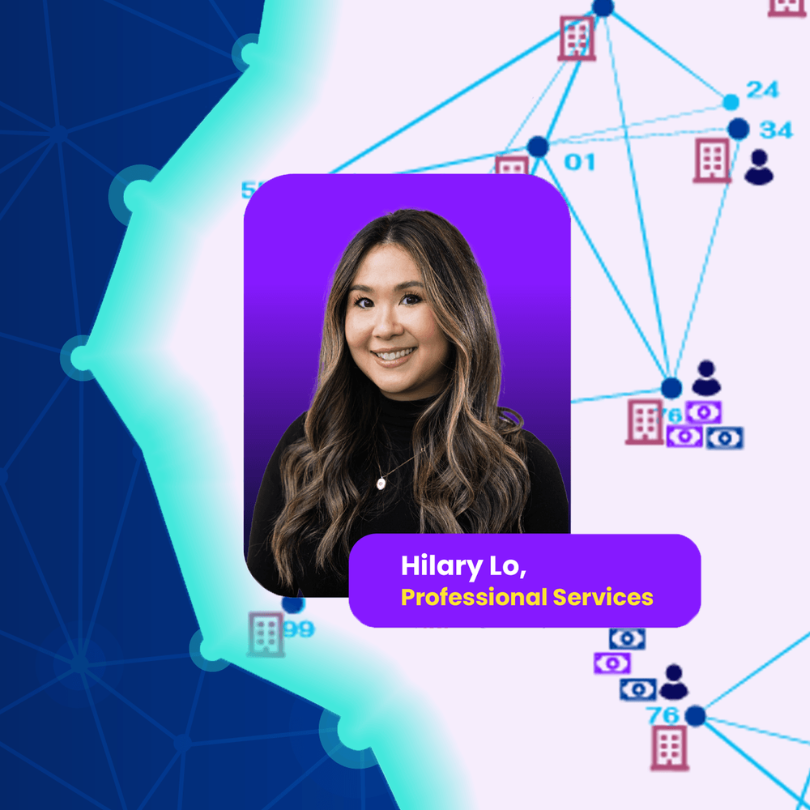
Life has an interesting way of traversing full circles, a route that my career has so far taken. As a young college graduate, I began working as an intelligence analyst in local and federal law enforcement. There were things I absolutely loved about public service, but I yearned for a faster pace. I changed careers completely and began working at a tech company, but while there, I found our mission lacking and I missed the problem solving of interesting tactical cases. After years away from law enforcement, I was lucky enough to find a career at Siren which merges the two industries I am passionate about, working the cross section of a technology company that provides much needed solutions for law enforcement.
With some distance yet familiarity, it’s been an interesting and unique lens through which to revisit this sector. While much has changed in 15+ years, so much of law enforcement hasn’t. There are new technologies that law enforcement must keep up with as criminals find new ways to circumvent the law, yet there are still the same tools and processes in which to catch the perpetrator. There have traditionally been major gaps in technology.
Here are a few things I’ve noted that were issues 15+ years ago and are still issues today, with the application and embracing of a technology that I think is going to make a huge splash in the new 2025 year.
1. Mundane search across multiple databases
There are fun elements to an analyst’s job but there are mundane aspects as well. One of which is having to collect information by running the same search multiple times in over 20+ different databases, each with their own idiosyncrasies on how to perform a simple search, some brand new, others reminiscent of a 1980’s DOS screen. A side consequence of this is having to keep track of all your log in credentials as well, which we all did on an Excel sheet, which is a safety concern and absolutely not advised, but we all did anyway!
There were new technologies that would connect some of these databases, which was nice to reduce your 25 database search to still 20. However searching was difficult and would sometimes be untrustworthy and unreliable. And forget social media, the applications had no capabilities to connect that information with your internal data. That’s where finding a technology like Siren shines. You need a single source application which can connect the majority of the department databases, including social media, all in one search.
2. Missed links and difficulty connecting information
After most of the information is collected, now the analyst must sift through piles of saved documents to connect the dots. This is a main skill of the analyst, to go through these documents with a fine-tooth comb and make connections and logical leaps. And while many are great at their job, we as humans are fallible. Links and connections can be missed. Not all databases connect to a single application, a major gap that has long existed in law enforcement technology. It follows then that most data also can’t be linked through the application, making it another manual task. The secret sauce is the ability to make these joins from disparate datasets and finding a technology that can do that for you. Connections can now be made immediately which saves time and surface links an analyst might miss.
3. Manual reporting process, with limited access to visual tools and difficulty of dissemination
The analyst has all the information now but only he or she knows. The last piece of this important workflow is to clearly report on the findings and disseminate to those who have the right and need to know. To do so is time costly and manual, having to hand type every bit of information into a workup template. Not to mention there are almost no tools on the market that are law enforcement specific to create visual link charts.
4. Ability to scale and adding new data
Analysts want all the data, the more applicable datasets the better. They will find ways to search for information in this new dataset and add it to their repertoire. If it’s a particularly useful one which is searched often, they will request it be added to an application that can search multiple at the same time. However, this is where most of these applications have faltered through the years. Adding a new dataset to these applications is an arduous task not to mention the amount of money that it will cost the department. The good news is that technology has now become extremely flexible and adding new datasets is a relatively quick endeavor with the right tools. What in the past has taken years can now just take just a couple of months. Your tech stack with tools like Siren will now grow with your department and emerging technologies. It’s a quick in win in this current climate.
2025: The powerful implementation of AI
A relatively new frontier in law enforcement is the implementation and application of AI. The sector is still trying to understand the policy ramifications and how it can be applied to law enforcement work but many departments see it as a powerful tool they must begin to embrace. It’s a hot topic which garners a ton of interest. AI would be a huge benefit to cut down on time spent on doing so much that was just listed above, a complete game changer. Siren is proud that we not only have found a way to creatively and impactfully apply this to our platform, but we’ve also thought through the implementation with law enforcement’s strict privacy and policy guidelines.
An analyst’s job hasn’t changed much in the past 15 years, but it doesn’t mean it needs to stay that way. Technology is filling the manual gaps and making law enforcement work quicker, less error prone, and ultimately help with saving lives. I count myself lucky that I work in a sector that I enjoy with clients that I’m passionate about and helping develop new and exciting new tools and features to help the law enforcement community in the next year and beyond.
If you would like to discuss any of the topics about and how you might solve them with technology, get in touch!




